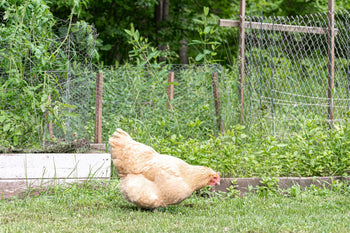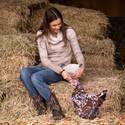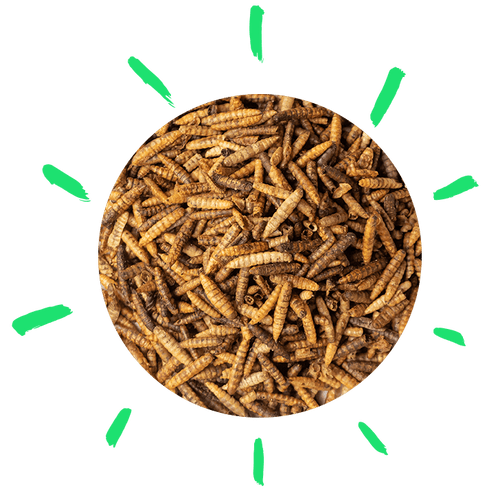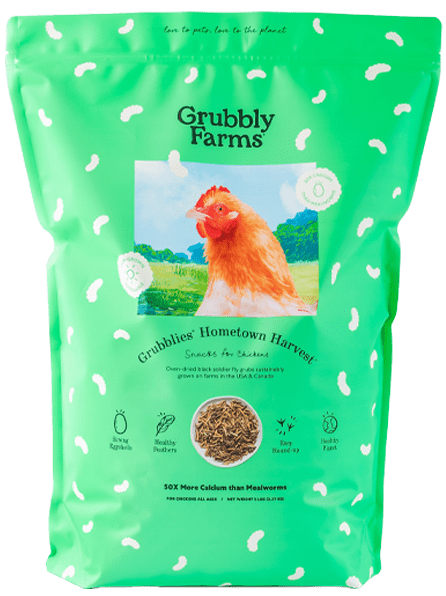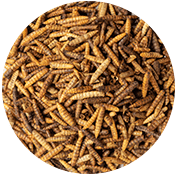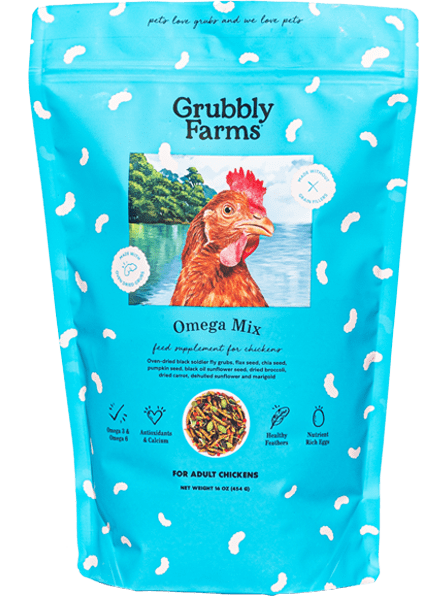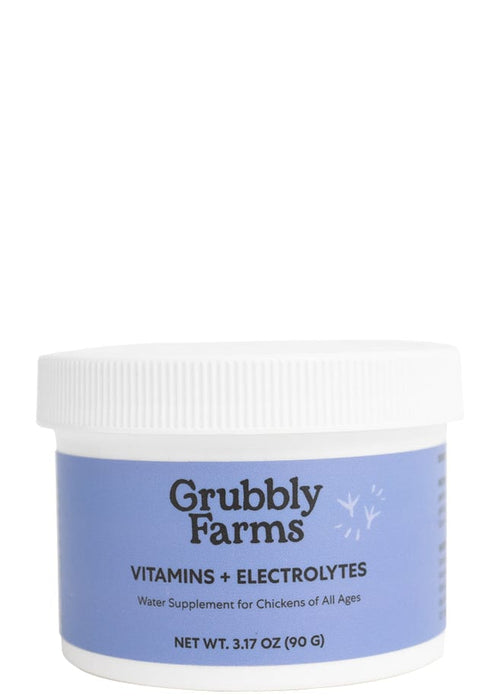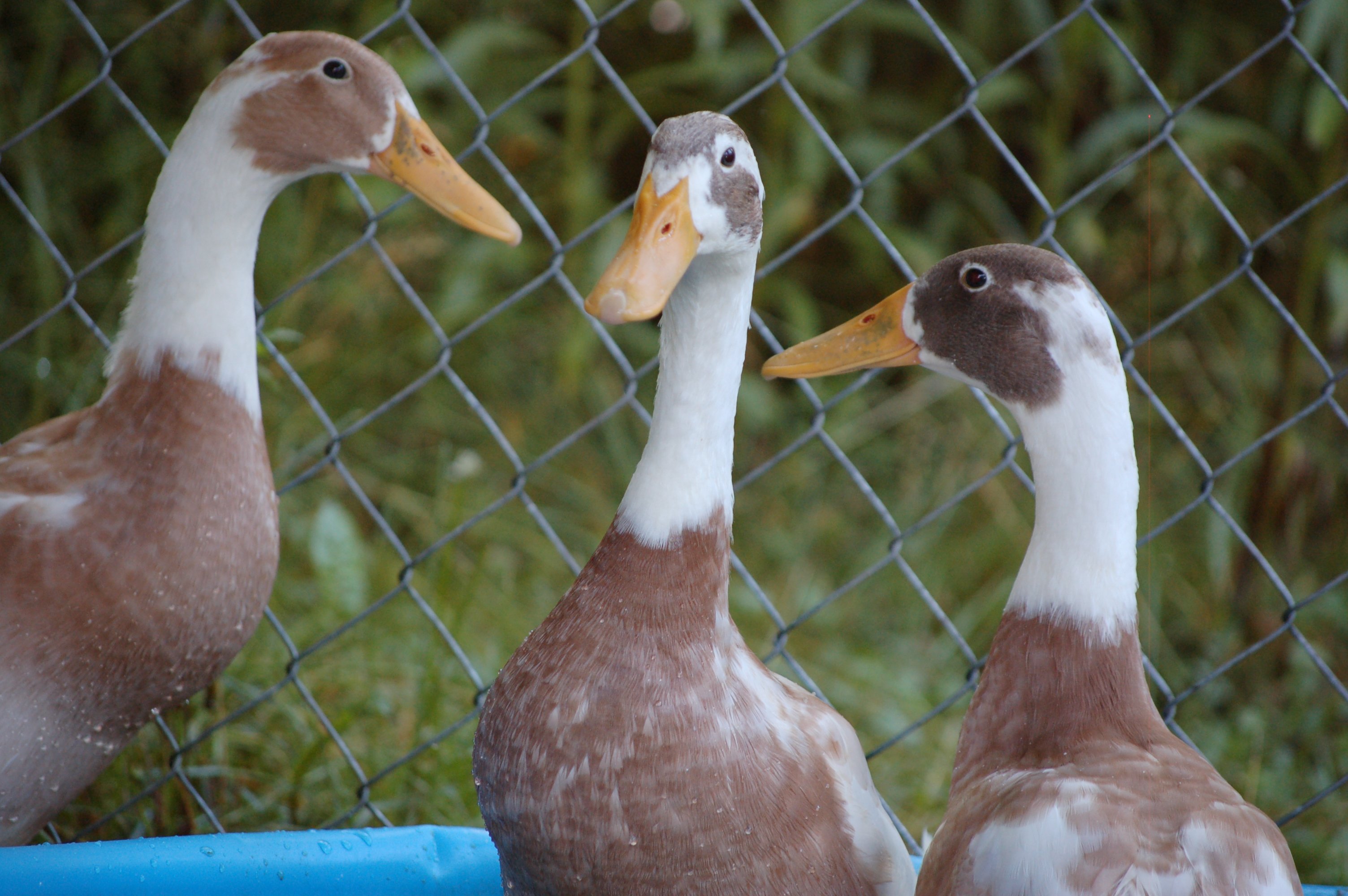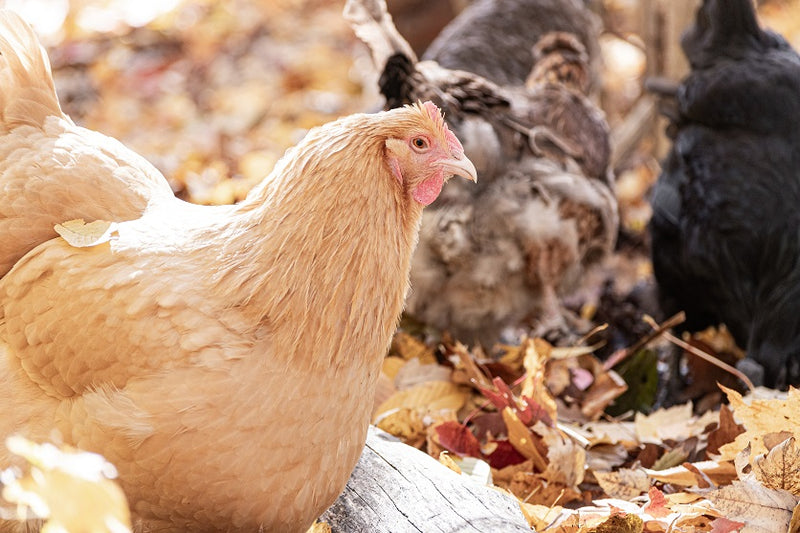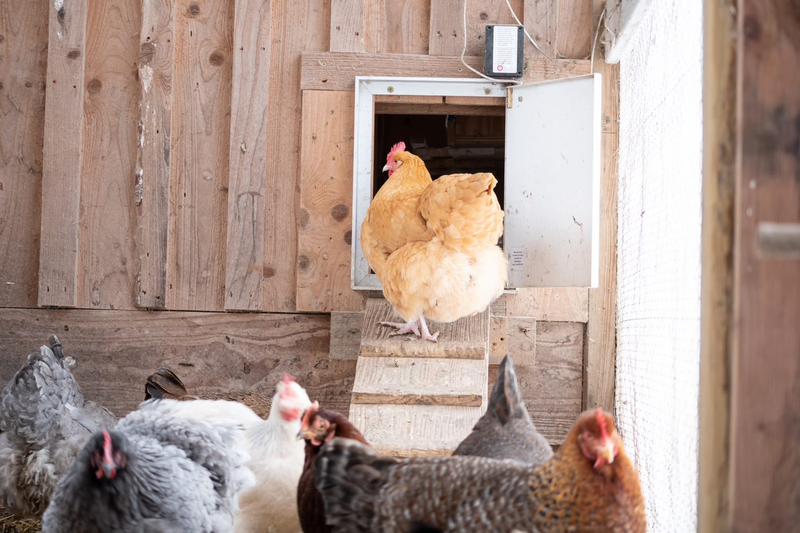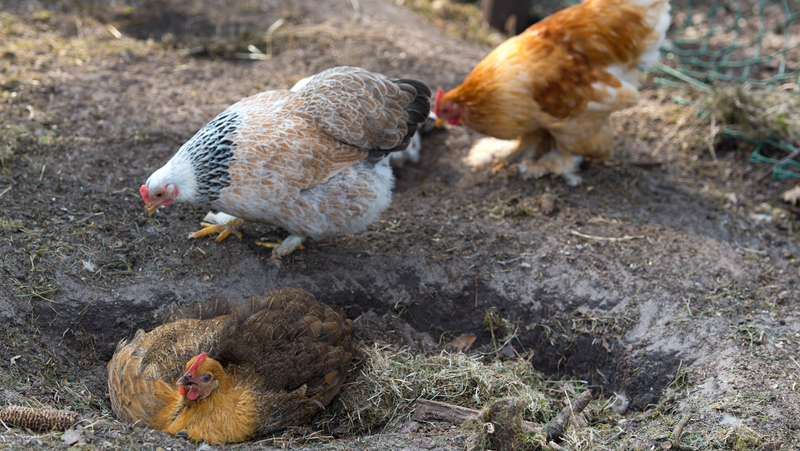Chickens are foragers, meaning they will sort through leaves, dig up dirt, and munch on plants. This can all sound very hazardous to your garden. However, there is actually a symbiotic relationship between chickens and gardens. You can manage your flock and your backyard garden in a way that provides benefits for both! Chickens can help with pest control and create a healthy garden environment so your plants will thrive.
The Benefits of Chickens in the Garden
Chickens can become great gardeners for you without destroying your plants! Here are some of the benefits that chickens can provide for the backyard garden:
- Enhance pest control naturally
- Provide organic fertilizer
- Aerate the soil
- Reduce garden waste
- Provide weed solutions
Enhancing Pest Control Naturally
Chickens can provide a chemical-free way of managing pests in the garden. Foraging for insects is a natural instinct for chickens. They will happily gobble up any bugs and insects that destroy garden plants. This allows you to avoid using harsh chemicals or pesticides in your garden. Not only will chickens eat any insects they find, but they will also eat any insect eggs or larvae that they come across, which can help break up the lifecycles of harmful insect infestations.
Providing Organic Fertilizer
Chickens are a great asset to the garden, but chicken manure may be even more helpful! Chicken manure acts as a natural fertilizer for the soil. It has one of the highest N-P-K (nitrogen, phosphorus, & potassium) ratios compared to other livestock manures. It is also high in calcium since laying hens consume a diet high in calcium for producing eggs.
The key to using chicken manure in the garden is allowing it to age properly before planting your garden. Fresh chicken poop has high concentrations of nitrogen, which can burn young plants and seedlings. This issue can be resolved by allowing the chicken poop to age for 3-6 months. Chicken poop can be aged by being turned into compost or by giving your garden a rest between having the chickens in the garden and planting season. A popular method in northern regions is to give your flock access to the garden in the fall after harvest season, then allow the garden to rest (and any chicken poop to age) over the winter.
Chicken manure helps improve soil fertility and improves the structure and volume of the soil. When made into compost, chicken manure can provide these benefits:
- Helps the soil retain moisture better
- Acts as a natural amendment for sandy, silty, or clay soil
- Helps plants develop stronger roots
- Makes plants more resistant to disease
- Adds nutrients to the soil and acts as a slow-release fertilizer
Aerating the Soil
As chickens scratch the ground in search of pests, bug larvae, and weed seeds, they also naturally aerate the soil. Soil that is aerated allows for better water infiltration, which improves the root growth of plants. Chickens can reduce the need for tilling your garden soil as they naturally turn over the top layer of soil while leaving the lower soil undisturbed.
Reducing Waste with Chickens
Chickens are masters at helping reduce garden waste! As foragers, the garden acts as a natural buffet for your flock! You can give them free access to the buffet, or you can manage what delicacies they get from the buffet. Here are some of the garden scraps that chickens will happily take care of to reduce garden waste:
- Thinned seedlings
- Trimmings & deadheads from pruning
- Weeds
- Bug-eaten or nibbled produce
- Bolted vegetables
You can give your chickens access to the garden in the fall after you have harvested any produce you want to save. They will clean up any of the leftovers, till up the soil, and leave behind nutrient rich chicken manure so your garden will be all ready for spring! Meanwhile, you save on time from having to clean up leftover produce, till the soil, and fertilize the garden.

Weed Solutions
Chickens can help with pest control, which is one problem in the garden, but they can also help with another problem in the garden: weeds. To chickens, all plants are up for grabs, even plants that we would consider useless weeds. You can feed your flock weeds that you pull from the garden, or you can set them to the task of weeding as long as you have your crops protected. Give your flock access to the garden before, after, or in between planting times to give them the chance to mow down any weeds and consume weed seeds.
Most weeds are safe for chickens to consume, but one common garden weed to avoid letting your chickens eat is buttercup. Safe weeds for chickens to consume include:
- Beautyberry
- Bittercress
- Burweed
- Cat’s ear
- Chickweed
- Clover
- Dandelion
- Evening primrose
- Fat hen
- Hawkweed
- Mugwort
- Nettle
- Yellow wood sorrel
- Plantain
- Purslane
- Smartweed
- Violet
- Wild carrot
- Wild Carolina geranium
- Wild strawberry
- Yarrow
Common Garden Pests Chickens Love to Eat
Chickens love bugs. Which means they will consume both good bugs and bad bugs in the garden. If you find any good bugs in your garden, safely relocate them to an area that is protected from your chickens. Good bugs for the garden include earthworms, butterflies, ground beetles, ladybugs, spiders, and toads. Your flock will then become an asset for eliminating any bad bugs in the garden.
Your flock can help control garden pests by just being near the garden as well. Chicken tunnels (called ‘chunnels’) can be made from chicken wire and act as pathways that contain your flock to certain aisles of the garden. The chickens can forage on the ground and may even be able to reach through the wire to nab any intrusive pests. Containing your flock in a chicken tractor in the garden is another good way to allow them to help with garden pests without them having free-range of the garden.
Here are some common garden pests that chickens will eat:
- Beetles
- June bugs
- Cabbage worms
- Crickets
- Aphids
- Grasshoppers
- Caterpillars
- Earwigs
- Ants
- Moths
- Flies
- Ticks
Can Chickens Eat Garden Slugs?
Yes! Chickens will eat slugs, however, they are usually not a chicken’s first preference when foraging for insects. Ducks are much better at controlling snails and slugs in the garden! Slugs and snails eat seedlings, leaves, and produce in the garden, so having your flock of chickens or ducks eliminate them can reduce their destructive nature in the garden.
Can Chickens Eat Centipedes?
Yes! Centipedes and millipeds are often seen as garden pests. Millipeds are usually more destructive than centipedes as they will eat seedlings and plant roots. Centipedes eat other insects, which can help eliminate pests, but they will also eat beneficial bugs too, like earthworms. Chickens will eat centipedes and millipedes when they are foraging in the garden, which can help rid your garden of these unwanted pests.

How to Set Up a Chicken-Friendly Garden
Chickens can be a great help in the garden, however, they have to be managed carefully since your flock won’t be picky when it comes to foraging on plants or digging in the soil. They love the same produce that you love and can eat your garden produce before you have a chance to harvest it. Setting up a chicken-friendly garden is simple to do and will allow you to get the benefits of having your flock as gardeners without having them ruin your garden!
Step 1: Protect Your Plants
Not all plants are safe around chickens. Chickens will dig in the soil of the garden, which can uproot crops or uncover roots of trees and shrubs. Here are some plants you will want to protect in your garden before giving your chickens access to the garden:
- Newly planted seedlings
- New bushes or trees
- Delicate plants (e.g. leafy greens)
Fencing and raised beds are effective methods are protecting vulnerable plants. For fencing, you may find that you need something anywhere from 2 feet high up to 5 feet high depending on the persistence of your flock. If there are plenty of other areas for them to forage in, a short fencing may be all that’s needed to deter them from areas that are off limits.
To further discourage your flock from crossing a fenced boundary, use a fencing that has an un-stable top edge. This will make it harder for chickens to fly up and balance on the fence to get to the other side. You can also use netting over the fencing to deter chickens from flying up and over the fence.
To protect specific plants or ripening produce (like squash and pumpkins), use wire cages, cloches, or bells. You can place these cages over specific plants to keep chickens from nibbling on them. For newly planted trees or shrubs, ring the base of them with bricks, stones, pavers, or boards to prevent your chickens from digging in the loose soil around the roots.
Step 2: Rotational Grazing in the Garden
Chickens don’t need to always have access to all areas of the garden in order to be beneficial for the garden. Rotating your flock through different areas of the garden can help manage pests in the garden without having the chickens damage the soil from over-scratching or foraging on plants.
Fence off your garden into different sections or use a chicken tractor to contain your flock in certain areas of the garden. Allow your flock access to the area of the garden that is ‘chicken-ready’ and then rotate them into another area before they have been destructive in the first area. A ‘chicken-ready’ area of the garden may depend on what you have planted. If you have harvested one area of the garden, then you can let your chickens clean up that area while a different area of your garden is still growing and producing.
By limiting the amount of time your flock has access to a certain area of the garden, you can allow the garden to have a balance of rest and recovery time before planting time or in between chicken times. Here are some other benefits of maintaining a schedule for rotating chickens in different areas of the garden:
- Manages pests
- Breaks up parasite cycles
- Adds fertilizer to the soil (chicken poop)
- Tills the soil
- Controls weeds
- Prevents over-scratching or plant consumption

Step 3: Keep Chickens Away from Specific Plants
You will also want to protect plants that chickens would see as a yummy snack. Mature crops that are starting to produce will be prime targets for chickens. Chickens love leafy greens, root vegetable tops, ripe tomatoes, berries, and even squashes and pumpkins, so you will need to protect those crops. Some crops can even be harmful for chickens if they are consumed in large quantities.
Here are some garden crops that you should keep chickens away from:
- Tomatoes- leaves and stems contain the toxin solanine
- Potatoes, Rhubarb, Eggplant- also contain the toxin solanine
- Peppers- chickens will eat and destroy the plant
- Squash/Pumpkins- chickens will eat ripening squash/pumpkins
- Leafy Greens- chickens will mow down leafy greens like lettuce, spinach, or root vegetable tops
- Berries- chickens will eat berries off low-growing berry bushes

Step 4: Provide Alternatives for Scratching and Pecking
It is instinctual for chickens to scratch and peck as they forage. By providing alternatives for scratching and pecking other than in the garden, you can prevent your garden from being the single focus of your flock’s foraging time. As long as they can make occasional visits to the garden, your garden can still get the benefits of having chickens as gardeners.
Allow your flock access to a pasture or grassy yard along with your garden. If your flock has access to some woods, the leaf litter will keep them busy for hours as well. Compost piles, mulched areas, and sandy dust bathing areas will also draw your flock’s attention away from using your garden as a dust bathing area or digging holes all around your plants. Just make sure any mulched areas are sufficiently surrounded by a low barrier (large logs, stones, etc...) to keep the chickens from spreading mulch all over. One trick to keep chickens from digging too deep in mulched areas is to place a layer of chicken wire flat on the ground and then layer your mulch on top.
With enough forage to eat elsewhere, your flock will be less inclined to decimate your garden produce. Especially if you have low barriers set up around your most vulnerable crops.
Tips for Success When Using Chickens for Pest Control
- Flock Size- Monitor the number of chickens allowed in the garden at one time to prevent over-scratching.
- Save Your Seedlings- Avoid letting chickens in freshly planted areas to protect young seedlings.
- Seasonal Gardeners- Use chickens in the garden during the early spring and late fall when you do not have vulnerable crops growing.
- Contain Your Flock- Use portable chicken coops or chicken tractors to guide their movement. Use chicken ‘chunnels’ in the garden aisles or have protected raised beds that your flock can forage beside but not in.
- Complete Diet- Supplement their diet with a complete feed so they do not look to your garden for all of their daily nutritional needs.
- Cleaning & Maintaining- Regularly clean and maintain areas where chickens roam to avoid soil depletion or compaction. Rotational grazing and seasonal access can be ways to manage when your flock assists as gardeners.
- Chicken Poop Management- Avoid having fresh chicken poop directly on or near edible plants during harvest time to keep your crops clean.
- Breeds- Choose chicken breeds who are the best at foraging to get the most benefits from your chicken helpers. Good gardening breeds include Leghorns, Rhode Island Reds, Plymouth Rocks, Silkies, and Polish.
Plants That Are Chicken-Friendly and Garden-Safe

We’ve discussed all the plants that should be protected from chickens and what plants chickens should be kept away, so now let’s see what plants are chicken-friendly! Chicken-friendly plants are hardy plants that chickens naturally tend to avoid when foraging. These plants aren’t harmful for chickens, but chickens will only take a few nibbles or completely ignore the plants altogether.
Here are some plants to put in the garden that won’t need to be protected from your flock:
- Lavender
- Rosemary
- Mint
- Thyme
- Nasturtium
- Zinnias
- Garlic
There are also some garden crops that are relatively chicken-friendly and pair well with having chickens as gardeners. Some of these crops will need to be protected once they start to produce fruit, but they can still benefit from having chickens control pests and aerate the soil in the garden. Here are some garden crops that pair well with chickens:
- Strawberries (with protection when the berries are in season)
- Squash and Pumpkins (once established, protect the produce once it starts to ripen)
- Corn
- Beans
- Tomatoes (with protection when the fruit starts ripening)
- Herbs
- Fruit Trees (once established)
Conclusion
You can manage your backyard flock and your backyard garden in a way that is beneficial for both! The garden benefits from chickens as the birds help with pest control, aerate and till the soil, and provide a natural fertilizer for the garden. The chickens benefit from the garden by consuming protein-rich bugs, cleaning up leftover produce, and having the opportunity to naturally forage. Just make sure your garden is chicken-friendly by protecting the most vulnerable plants and crops or by containing your flock in a chicken tractor or in chicken tunnels. Start small and use your flock gradually in the garden... and you will quickly see what benefits your feathered gardeners add to your garden!
Source:
Steele, Lisa. Gardening with Chickens: Plans and Plants for You and Your Hens. Quarto Publishing Group USA Inc., 2016





